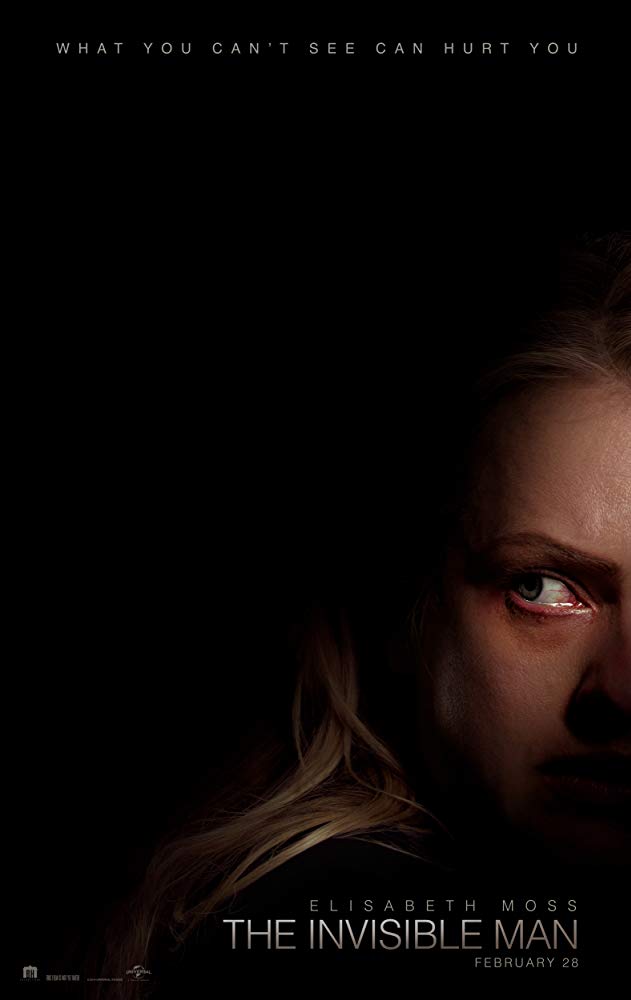In its simplest form, Leigh Whannell’s The Invisible Man is a classic monster movie with modern renovations. When a woman finds herself being stalked and manipulated by her abusive ex-boyfriend, no one will believe her for a good reason – as the title suggests, he can’t be seen. The best monster movies operate on a threat level that’s both physical and psychological, propelled by enough scares to keep audiences engaged. Invisible Man’s quality is transparent.
The Universal Pictures/Blumhouse Productions collaboration is a reimagining of the 1897 H. G. Wells source material that thematically blends in with today’s Me-Too movement – a woman being manipulated by a man while no one believes her. The movie opens with Cecilia Kass’ (Elizabeth Moss) midnight escape from her slumbering boyfriend, Adrian Griffin (Oliver Jackson-Cohen). She’s still terrified to step outside even when she hides at her friend’s house – Adrian controlled every aspect of her life, manipulating her to make her feel crazy.
It’s shocking news when she hears Adrian killed himself a few days later, leaving her with $5 million. Things are looking up, at least briefly, until she begins to suspect Adrian is living in the house with her even though he can’t be seen. Inexplicable occurrences (breakfast burning on a pan when she steps away for just a minute, cold breath visible in the air next to hers) escalate as she tries to convince everyone Adrian is invisible and she’s not losing her sanity.
After writing several Saw films and directing 2018’s Upgrade, Whannell knows exactly how to handle the camera. Shots linger on empty couches or unoccupied corners of the house. Framings are positioned to suggest there’s one more character in the shot that we can actually see. The clever cinematography will keep audiences’ eyes scanning every inch of the screen for clues. The premise lends itself well to jump scares, all of which are earned and genuinely frightening. One jump scare in a public setting is one of the most chilling and upsetting in recent thriller memory.
Moss is a seasoned television actress transitioning well to big screen horror – she was a scene stealer in last year’s Us. A majority of her best work is done while she’s battling an invisible foe, meaning she has to sell the performance for audiences to buy it. Her wide-eyed lunacy from The Handmaid’s Tale translates well here, her paranoia contagious to the audience who starts scanning every corner for Adrian.
A few years ago Universal announced its intention to create an interconnected cinematic universe of monsters like Dracula and Frankenstein, starting with Tom Cruise’s The Mummy reboot in 2017. It was the universe that would never be, with Universal announcing in 2019 it would instead focus on standalone stories after The Mummy’s middling box office returns and poor reception. The Invisible Man is the first film since then, operating on a rumored budget of $7 million following Mummy’s $125 million-plus budget.
The difference in quality is starkly visible. The tighter character focus and modernly reimagined monster could breathe new life in Universal’s horror movies. The invisible man offers a way forward with a monster that doesn’t only threaten the character physically, but psychologically. That’s the best kind of monster movie.





